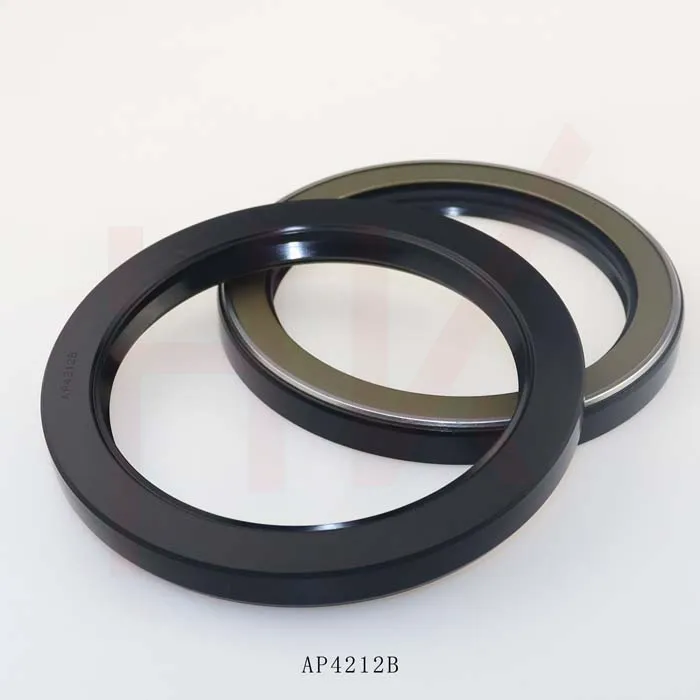Jul . 27, 2024 15:17 Back to list
Hydraulic Press Machine Oil Seal Maintenance and Replacement Guide for Optimal Performance
The Importance of Oil Seals in Hydraulic Press Machines
Hydraulic press machines are fundamental components in various industries, including manufacturing, metalworking, and recycling. These machines utilize hydraulic power to exert a significant amount of force for shaping, molding, or compressing materials. One crucial element that plays a vital role in the efficiency and longevity of hydraulic press machines is the oil seal.
What is an Oil Seal?
An oil seal, also known as a lip seal or rotary seal, is a mechanical component designed to seal the space between stationary and moving parts in a machine. In the context of hydraulic press machines, oil seals are critical for preventing hydraulic fluid from leaking out of the system while keeping contaminants such as dust, dirt, and moisture from entering.
Functionality in Hydraulic Press Systems
Hydraulic systems operate under high pressure, and any leakage can lead to a significant loss of performance. Oil seals assist in maintaining optimal pressure levels by effectively containing hydraulic fluid within the system. This fluid is essential for transmitting force throughout the machine, making the integrity of the oil seal crucial.
In a hydraulic press machine, oil seals are typically located in various areas, including the cylinder, piston, and any moving shafts. These seals must withstand high pressure and temperature variations while maintaining flexibility to accommodate the machine's dynamic operations.
Material and Design Considerations
hydraulic press machine oil seal

The materials used for manufacturing oil seals are imperative for ensuring their durability and effectiveness. Common materials include nitrile rubber, fluorocarbon rubber, and polyurethane. Each of these materials offers specific benefits, such as resistance to temperature extremes, chemicals, and wear.
The design of an oil seal can also vary depending on the application. For instance, some seals may incorporate a spring mechanism to apply constant pressure against the shaft, thereby enhancing sealing performance. Others may feature additional molding techniques to improve their ability to resist wear and tear in demanding environments.
Maintenance and Troubleshooting
While oil seals are designed to be robust, they are not impervious to wear. Regular maintenance of hydraulic press machines is essential to ensure that oil seals function effectively. Operators should routinely inspect seals for signs of wear, such as cracks, deformities, or fluid leakage. Identifying these issues early can prevent more significant problems and costly repairs.
When it comes to troubleshooting oil seal failures, several factors should be considered. Common causes include improper installation, inappropriate material selection, and over-pressurization of the hydraulic system. Each of these can compromise the seal's ability to perform, leading to leaks and diminished machine performance.
Conclusion
In conclusion, oil seals are a small yet crucial component of hydraulic press machines. Their role in maintaining hydraulic fluid integrity and preventing contamination cannot be overstated. By selecting the right materials and designs while adhering to proper maintenance protocols, industries can ensure the longevity and reliability of their hydraulic press machines. Investing time and resources into understanding and caring for oil seals ultimately leads to improved efficiency, reduced downtime, and enhanced productivity in industrial applications.
-
Wiper Oil Seal: Our Commitment to Clean Hydraulics
NewsAug.13,2025
-
Hydraulic Oil Seal for Self Discharging Cars
NewsAug.13,2025
-
Hub Oil Seal for Agricultural Tractor Hubs
NewsAug.13,2025
-
Skeleton Oil Seal with NBR Material
NewsAug.13,2025
-
Rotary Lip Seal for High Pressure Applications
NewsAug.13,2025
-
Cylinder Seal Kits Our Legacy of Hydraulic Trust
NewsAug.13,2025
-
Unlocking the Potential of Hydraulic Systems with Essential Sealing Solutions
NewsAug.06,2025
Products categories
















